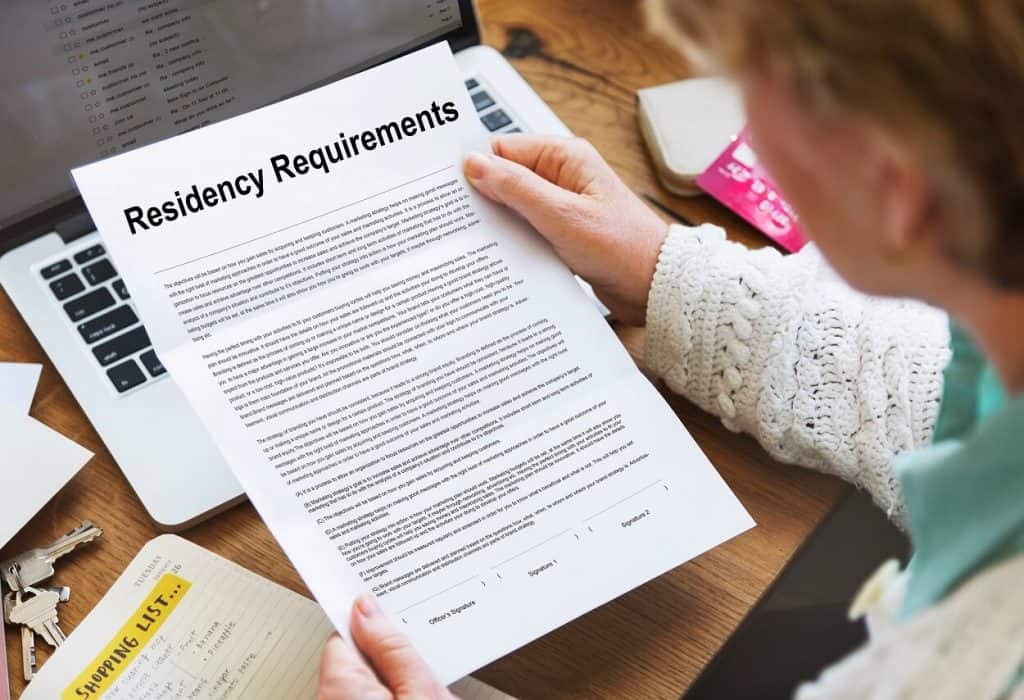In Georgia, a wife has the same rights and responsibilities as a husband when it comes to determining marriage termination issues. When deciding on divorce terms, state courts stick to the equitable distribution principle and consider case-specific aspects. Therefore, what property each spouse will receive, whether alimony will be awarded, and who will get custody will depend on many factors, but not gender.
Property Division Entitlements
Since Georgia is an equitable distribution state, marital property must be divided between spouses fairly but not necessarily equally. Who gets the house in a divorce in Georgia depends on various circumstances, but mostly on whether it is their joint or separate property.
Dividing Marital Property

Generally, all marital possessions of parties will be subject to division during a divorce. What is considered marital property in Georgia? It is property received or bought by spouses during marriage.
An exception to a basic rule can be real estate acquired during marital life but defined as separate by the prenuptial or postnuptial agreement.
When dividing marital property, Georgia courts will pay attention to the type of ownership, the financial contributions of each party, the list of their separate possessions, etc.
Dividing Separate Property

According to Georgia divorce laws, property division will apply only to the marital property of spouses but not to their separate possessions.
Separate assets may include:
- Property acquired before marriage.
- Gifts to one of the parties, excluding those made by the other spouse.
- Inheritance, etc.
In some cases, separate property may become joint during the marriage and be subject to distribution in a divorce. It is possible in situations where one of the spouses contributes to it and increases its value. For example, if your spouse has a separate real estate in which you invested while being married, it may be considered to become your joint ownership that should be divided.
Spousal rights in Georgia are defined by current legislation. However, determining their share when distributing real estate can be difficult; therefore, the court can order spouses to sell it and split the proceeds. Another option may be to exchange assets; for example, spouses can negotiate so that one of them will get a family home while the other will obtain a country house.
Assets Division Entitlements

In addition to real estate, spouses may have other assets that must be distributed during marriage dissolution. In Georgia, dividing assets in divorce will be done following the principle of equitable distribution. Both spouses will have the right to a portion of marital possessions.
The determining factor in how assets are divided in divorce will be the type of their ownership; it can be joint or separate.
A list of assets to be distributed in a divorce may include, but is not limited to:
- Retirement accounts.
- Stocks and bonds.
- Cash, etc.
They will probably not be divided if you receive them prior to marriage; however, if you acquire them after officially registering your relationship, they will likely be distributed.
The final court’s decision on the money split and other assets division depends on the length of the marriage, income level, and other circumstances.
Alimony Entitlements

Georgia courts can award temporary or permanent spousal support to either spouse in a divorce. The decision on granting alimony will depend on the behavior of both spouses during marital life, their financial situation, ability to self-support, etc., but not on gender.
Temporary spousal maintenance is appointed for the duration of court proceedings and lasts until the process is finalized. Permanent alimony is long-term and can be paid by either party for decades.
If the wife earns less than the husband and cannot maintain a sufficient standard of living after a divorce, she can request the court to grant alimony. If the husband cannot support himself and the wife’s income is higher, he may ask for financial assistance as well.
After analyzing the case circumstances, judges can refuse to assign alimony at their discretion; for example, if one of the parties has a lower income than the other but a larger list of separate properties and asks for support, it may not be granted.
Factors That Affect the Court’s Decision Regarding Divorce Entitlements

According to divorce laws in Georgia, when making a decision on divorce terms, state courts will seek to divide the rights and responsibilities of parties fairly. They will take into account numerous factors and circumstances, with a unique approach to each case. Let’s analyze some of them in more detail.
- Length of the Marriage. In most cases, the longer the duration of marriage is, the more equal the distribution of assets between parties will be. This is explained by the fact that over many years of marital life, most property passes from separate to joint and must be divided in a divorce. Even if one of the spouses worked and earned more money than the other, who took care of the children and the household, they would have the right to a fair share of marital possessions.
- The Fault of Either Party. In Georgia, the behavior of spouses toward each other usually has a significant impact on the outcome of a divorce. In particular, when deciding on alimony, the court will consider the grounds for marriage dissolution stated in a complaint. If either party has abandoned the other or committed adultery, they will be barred from receiving spousal support during the divorce or after the marriage ends (C.G.A. § 19-6-1).
- The Health of the Parties. The state of the spouses’ health can directly influence their ability to provide for themselves after a divorce. If one of the parties is ill and needs expensive treatment or cannot work to maintain decent living conditions, the other party may be ordered to pay alimony. In addition, a spouse with limited employment opportunities may receive a larger share of joint property.
- The Parties’ Liabilities. Spousal debts must also be divided in a divorce. To distribute them fairly, the court must first determine which are separate and joint. Separate obligations of spouses will remain their personal debts; marital liabilities will be divided equitably like other assets. If parties have a mortgage and cannot pay it after a divorce, the court can order them to sell the house to pay off the debt.
- Education and Earning Potential of Each Party. The parties’ education and their ability to support themselves are closely related. If either spouse does not have an education and cannot get a job, the court can assign them spousal support for a period of time sufficient to receive it. If one of the spouses can no longer study due to age or health, the court may assign permanent alimony. Lack of education or work experience can also change the terms of property division. If the judge deems it necessary, they can award one spouse more assets than the other.
Additional factors that can affect the judge’s decision over divorce terms can be child custody and visitation proportions, potential future needs of both spouses, etc., but not gender.



